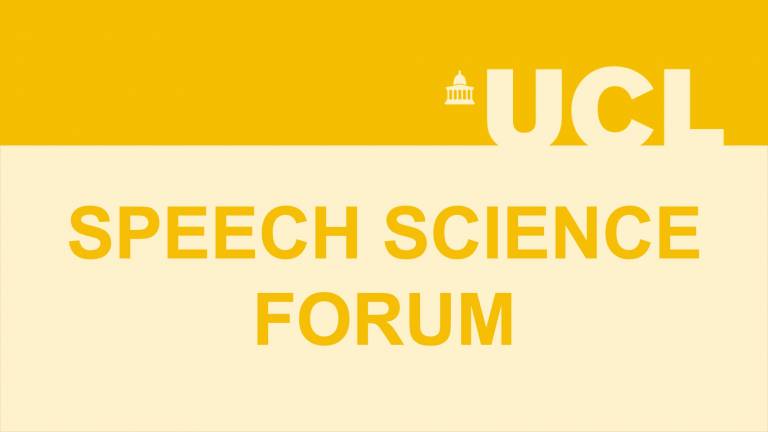Speech Science Forum: Dr Daniel Lametti
31 October 2019, 4:00 pm–5:00 pm

Sensorimotor Adaptation in Speech and Coincident Hand Movements. Room: 118, Chandler House
This event is free.
Event Information
Open to
- All
Cost
- Free
Organiser
-
Nadine Lavan
Location
-
1182 Wakefield StreetLondonWC1N 1PF
Sensorimotor Adaptation in Speech and Coincident Hand Movements
In this talk I’ll review two recent studies from my lab that use real-time manipulations of speech feedback to examine sensorimotor adaptation in speech production. In the first half of the talk, I’ll present a new experimental model we developed to examine sensorimotor control in speech and hand movements—behaviours that commonly co-occur in the real world. The paradigm has participants make rapid movements of a fingertip-controlled joystick to control a cursor on a computer screen; in strict time with their hand movements, they produce words into a microphone and hear their productions in real-time through headphones. Using visual alterations of the cursor’s screen position, and auditory alterations of vowel sound feedback, we can drive sensorimotor adaptation in one or both motor domains simultaneously. In a series of studies with this dual-task, we report one-sided interference between these behaviours. When speaking and simultaneously making hand movements, speech production impairs sensorimotor control in hand movements, but hand movements have no impact on speech. The interference, we find, relates to an explicit (i.e., conscious) adaptation mechanism used to control hand movements that may not be present in speech production. In the second half of the talk, I’ll review our recent work examining sensorimotor adaptation during fluid, sentence-level speech production (i.e., real-world speech). I’ll present evidence that real-time alterations in vowel sound production drive rapid and precise sensorimotor adaptation, even during the production of complex and highly variable sentences. Furthermore, sensorimotor transformations acquired during fluid sentence production are readily applied to the isolated production of words with varying vowel sounds. Taken together, the two studies suggest that sensorimotor learning in speech is a robust phenomenon unencumbered by coincident hand movements and speech complexity.
About the Speaker
Dr Daniel Lametti
Assistant Professor at Acadia University
More about Dr Daniel Lametti Close
Close

